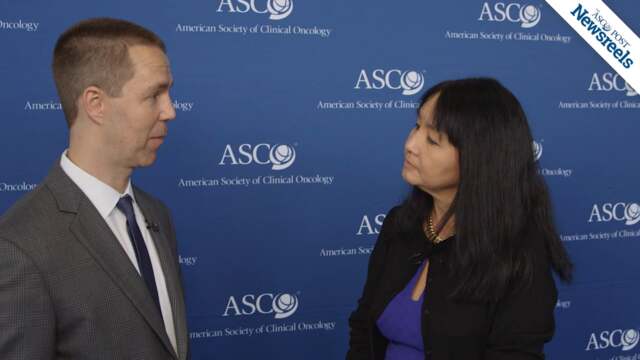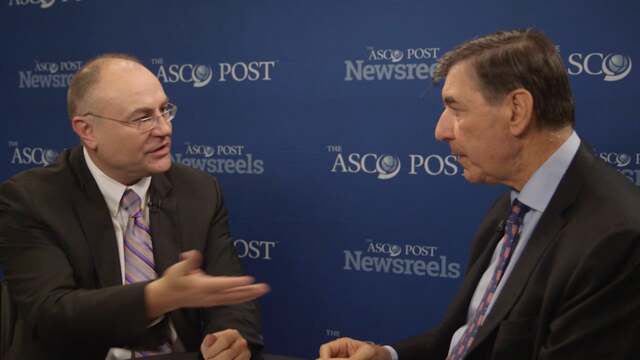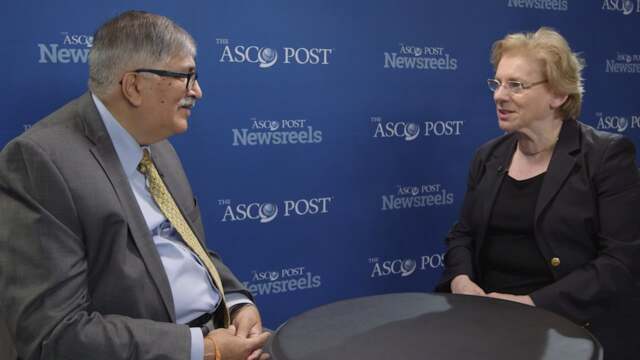Antonio Palumbo, MD, on Multiple Myeloma: Results From the CASTOR Trial (Italian Language Version) 
2016 ASCO Annual Meeting
Antonio Palumbo, MD, of the University of Torino, discusses in Italian this phase III study of daratumumab, bortezomib, and dexamethasone versus bortezomib and dexamethasone in patients with relapsed or refractory multiple myeloma (Abstract LBA4).

To see the English language version of this video, please
click here.
Eric Roeland, MD, of the University of California, San Diego, and Timothy E. Quill, MD, of the University of Rochester Medical Center, discuss the debate on whether physician-assisted death should be a legally available option at the end of life when neither palliative nor hospice care is satisfactory.
Eric Roeland, MD, of the University of California, San Diego, and Linda Van Le, MD, of the University of North Carolina discuss ways to manage symptoms that affect up to 80% of postmenopausal women, diminishing their quality of life.
Heinz-Josef Lenz, MD, of the University of Southern California, and Marc Ychou, MD, of the Centre Régional de Lutte Contre Le Cancer, discuss study findings on FOLFIRINOX combined with targeted therapy according to RAS status for colorectal cancer patients with initially nonresectable liver metastases (Abstract 3512).
Sagar Lonial, MD, of Emory University School of Medicine, and Paul G. Richardson, MD, of the Dana-Farber Cancer Institute, discuss the top presentations on multiple myeloma delivered at this year’s meeting.
Rakesh Chopra, MD, of the Artemis Health Institute, and Mary Gospodarowicz, MD, of Princess Margaret Hospital, discuss oncology from an international point of view.






